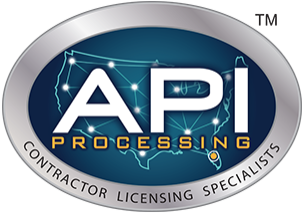Understanding the Corporate Transparency Act’s Effect on Small Business
A new law known as the Corporate Transparency Act (CTA) mandates that starting January 1, 2024, the majority of U.S. corporations must provide the federal government with ownership information. This means most businesses in the U.S. will need to file a form called the Beneficial Ownership Information (BOI) Report with the federal government. Importantly, this law will affect almost all small business owners.
The purpose of the CTA is to stop dishonest people and other bad actors from using American anonymous businesses to launder money abroad. With the help of this endeavor, law enforcement and other partners will be armed with the knowledge they need to stop financial anonymity, which supports illegal activities including drug trafficking, terrorism, and corruption.
How the CTA Works
The CTA was passed to improve transparency in entity structures and ownership. Its goal is to gather additional data regarding the ownership of particular companies that are involved in or have access to the US market. Violations of this law can result in a civil penalty of $500 per day the violation continues and criminal penalties of up to $10,000 and two years in prison.
The CTA requires beneficial owners – those with “significant control” over a firm — to report their information to the Financial Crimes Enforcement Network (FinCEN) of the U.S. Treasury Department. FinCEN will store this information in a secure database. The intention is to stop anonymous shell corporations from doing business in the US.
What Are Shell Corporations?
Shell corporations are businesses that exist mostly on paper, and have no physical office, employees or substantial business operations. While some do have legal reasons for existing, many are used for money laundering, which disguises where money originates from.
In fact, according to the U.S. Department of the Treasury, Secretary of the Treasury Janet Yellen has noted, “Unmasking shell corporations is the single most significant thing we can to make our financial system inhospitable to corrupt actors.”[1]
What Constitutes a Beneficial Owner?
Anybody who controls a substantial portion of the company’s finances or who has a minimum of 25% of the company’s shares is considered its beneficial owner. The CTA states a person has substantial control if they:
- are a senior officer (such as a CEO, CFO, president, etc.);
- can appoint or remove senior officers or a majority of directors;
- can direct, determine, or have substantial influence over important decisions within the company;
- have any other form of substantial control over the company.
The beneficial owner of a business is typically its legal owner.
What Businesses Must File to FinCEN?
All domestic businesses created by registering with a state will be subject to the Corporate Transparency Act. This includes corporations, LLCs, limited partnerships, limited liability partnerships (LLPs), and business trusts, to name a few. Foreign businesses that make a filing with any state are also subject to the CTA.
To learn more about BOI reporting requirements, click here.[2]
Are There Any Exemptions to Who Must File?
Sole proprietorships, common law trusts, and general partnerships do not need to report information to FinCEN – they are not currently within the definition of a Reporting Company because they are not formed by filing a document with a Secretary of State or similar official.
While there are 24 BOI reporting exemptions covered by the CTA, in general, a business is likely exempt if it:
- employs more than 20 employees on a full-time basis in the U.S.;
- filed last year’s federal income tax returns with over $5,000,000 in gross receipts or sales;
- has an operating presence at a physical office within the U.S.
For more information on BOI reporting exemptions, click here.[3]
Bottom Line
API Processing, a full-service license processing firm with 22 years’ experience in the electrical and construction industries, can easily handle your BOI reporting needs. With the knowledge and resources to handle all licensing needs, API Processing manages every aspect of the licensing process from start to finish, guaranteeing 100% service.
Let API Processing help, to get started, click here!
[1] Source: Fact Sheet: U.S. Department of the Treasury Actions to Prevent and Disrupt Corruption. December 11, 2023.
[2] Source: Federal Register, the Daily Journal of the United States Government. “Beneficial Ownership Information Reporting requirements.”
[3] Source: Financial Crimes Enforcement Network.
